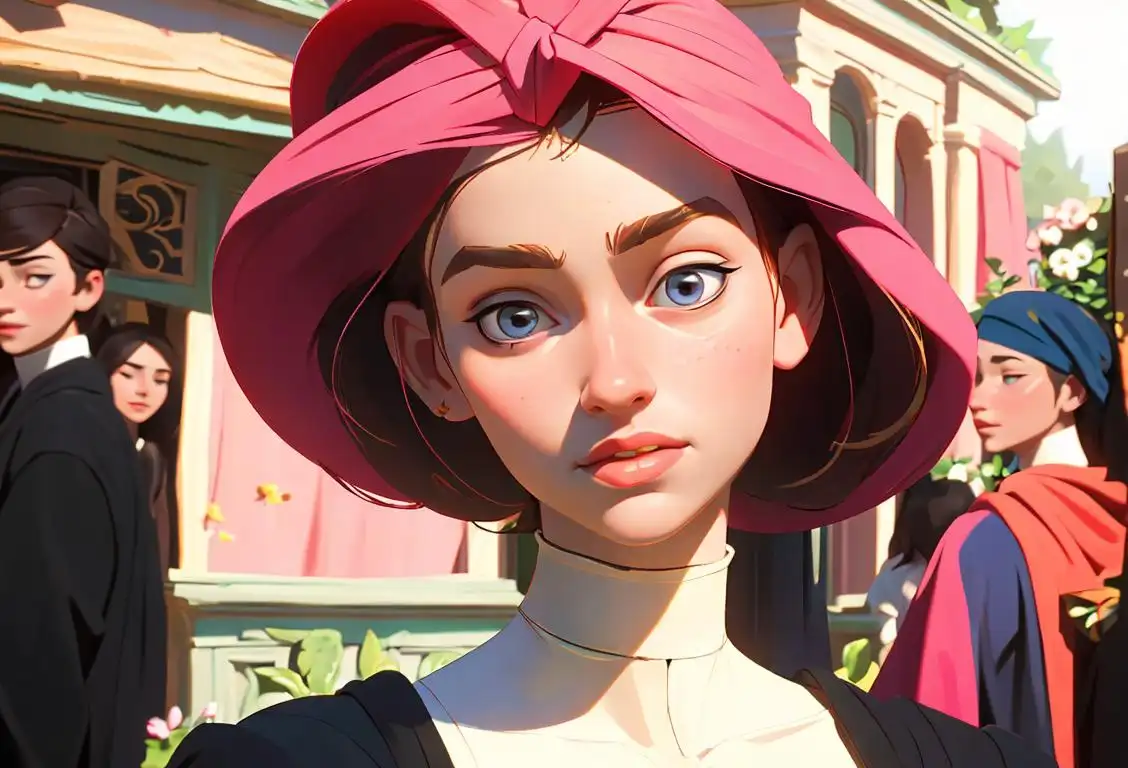National Rebel Day

What do you get when revolutionaries and hype meet digital social media? National Rebel Day! Although with only 4 mentions online, arguably still in its rebellion phase against mainstream recognition.
When is Rebel Day?
It's national rebel day on the 22nd October.
Is Rebel Without a Cause an Evergreen Motto?
Arriving on the global calendar with literally a bit of a bang in 2017, National Rebel Day has been observed on the mild-mannered 22nd of October. While not quite as widespread as national 'love your pet' day, there's a certain cryptic charm that entices the rebellious spirit within us all.
When a Rebel Yells, Does Anyone Hear?
The day seems to echo with a rebellious battle cry summoning us all to embrace our inner renegade. The key is not to revolt against your daily vegetables, though, but to challenge the norm, think differently, and creatively disrupt for the better. Luckily, bedtimes are not mentioned as part of this rebellion, phew!
Celebrating the Day Like a Rebel
If you've been waiting for a legitimate excuse to dye your hair blue or tell your boss what you think of their email jargon - caution advised here, it's important to remember rebelliousness requires a blend of bravery and savvy!
Isn't Every Day Rebel Day?
Most likely, the genius behind this day woke up on the 22nd of October 2017 and just decided no more 'making my bed' or 'eating that last carrot on the plate'! Since then, the tiny wave of rebellion has been building on the internet. Wear that unmatched sock combo with pride!
History behind the term 'Rebel'
14th century
Etymology of 'rebel'
The term 'rebel' originates from the Latin word 'rebellare', which means 'to wage war again'. In the 14th century, it was borrowed into Middle English as 'rebelle'.
15th century
Emergence of the Rebel Alliance
The term 'rebel' gained popularity during the 15th century in reference to the rebels who rose against the monarchy or tyrannical rulers. It was a term used to describe those who revolted and resisted authority.
18th century
American Revolution
One of the most significant moments in rebellion and the rise of the term 'rebel' was the American Revolution. American colonists, who were considered rebels by the British government, fought for independence from British rule.
19th century
Romanticizing Rebellion
During the 19th century, the concept of rebellion started to be romanticized through various artistic and literary works. Rebels were often portrayed as figures of bravery, freedom fighters, or champions of justice. This romanticized image of rebellion contributed to the popularization of the term 'rebel' in cultural discourse.
20th century
Civil Rights Movements
Throughout the 20th century, various civil rights movements emerged around the world, challenging oppressive systems and advocating for equality. The terms 'rebel' and 'rebellion' were frequently used to describe the individuals and groups involved in these movements, fighting against racial segregation, discrimination, and social injustice.
21st century
Pop Culture Icons
In the 21st century, rebellion has become a popular theme in pop culture, with iconic figures like Che Guevara, James Dean, and Bob Marley epitomizing the rebellious spirit. The term 'rebel' continues to be associated with those who defy norms, challenge authority, and pursue change.
Present
Rebel as an Empowering Identity
Today, the term 'rebel' has evolved to become an empowering identity for individuals who embrace nonconformity, independence, and the courage to challenge existing systems. It represents a spirit of resistance, autonomy, and rebellion against injustice in various aspects of life.
Did you know?
The most mentions of National Rebel Day online were on its inaugural date in 2017.Tagged
awareness fun rememberance Celebration Fun Awareness Rebellion History quirkyFirst identified
22nd October 2017Most mentioned on
22nd October 2017Total mentions
4Other days
Rebel Day
Head Day
Womens Day
Girlfriend Day
Polyamory Day
Suicide Prevention Day
Heroes Day
Memorial Day
Unemployed Day
Bestfriends Day








